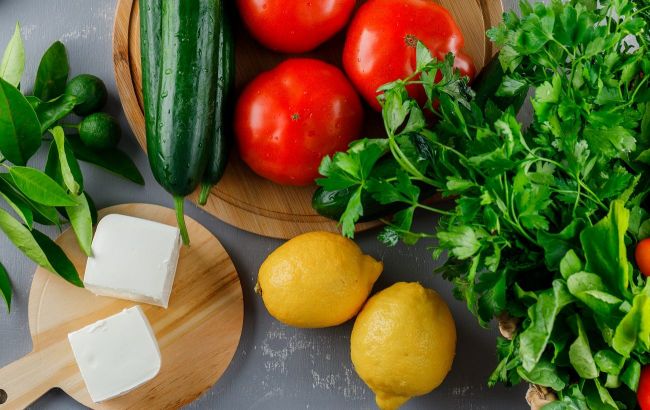Organic or not: Are they worth it and how to shop for them safely
 Photo: Are organic products really healthy? (Freepik)
Photo: Are organic products really healthy? (Freepik)
Ukrainian consumers are increasingly paying attention to organic products, driven by both the trend for "eco" products and for health reasons. But are organic products really healthier? And how do they differ from conventional ones? Ukrainian professor and nutritionist Oleh Shvets explains on Facebook the difference between organic products and regular ones.
How organic products differ from conventional ones
The label "organic product" primarily refers to the method by which the product is produced. In organic farming, growth hormones, antibiotics, and most synthetic pesticides are not used. Moreover, animals must be fed natural feed and have access to pasture.
At the same time, both organic and conventional products undergo the same safety checks. Eating organic does not guarantee a higher intake of vitamins or nutrients. This depends on the variety, soil, harvest time, and storage conditions.
What research says about organic products
Scientists confirm that organic products contain fewer pesticide residues. This is especially important for pregnant women, as exposure to certain chemicals is linked to developmental complications in the fetus. There is also evidence that people who frequently choose organic products are less likely to develop non-Hodgkin lymphoma.
However, it is hard to determine whether specifically organic food has a positive impact on health. People who buy organic generally lead healthier lifestyles, exercise more, smoke less, and eat better overall.
Experts emphasize that it is more important to consume a sufficient amount of vegetables, fruits, and balanced meals daily, regardless of whether they are organic or conventional.
How to verify that a product is truly organic
In Ukraine, there are clear criteria for labeling a product as organic. The label must include:
- State logo (Euro-leaf or the words "organic product")
- Certification body code
- Confirmation that at least 95% of the ingredients are of organic origin.
Imported products are also recognized as organic if they have an international certificate.
How to make any product safe
Experts recommend:
- Choosing fresh, undamaged fruits and vegetables
- Washing them under running water (without soap)
- Storing them at the correct temperature
- Cutting and preparing them with clean hands and tools
- Choosing seasonal and local products whenever possible.
Vinegar or baking soda can help remove some contaminants, but may alter the taste.
So, what should you choose?
Organic products have the advantage of lower pesticide content, but they are more expensive. If the budget is limited, conventional fruits and vegetables, when stored and washed properly, are just as healthy and safe.
The key is a varied diet, seasonal products, and a healthy approach to eating. This, rather than the organic label, has the greatest impact on long-term health.
This material is for informational purposes only and should not be used for medical diagnosis or self-treatment. Our goal is to provide readers with accurate information about symptoms, causes, and methods of detecting diseases. RBС-Ukraine is not responsible for any diagnoses that readers may make based on materials from the resource. We do not recommend self-treatment and advise consulting a doctor in case of any health concerns.

